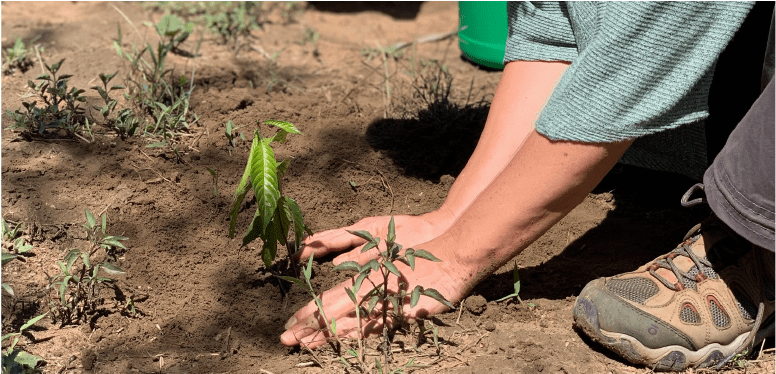Get to know Trees for the Future’s Director of Programs Brandy Lellou
Written by Brandy Lellou
In 2005, after just returning from seven years working in the northwest African desert country of Mauritania, I sat around the table with Dave Deppner, the founder of Trees for the Future (TREES) and John Leary, now Executive Director, as they described their tree planting methodology in farming communities. Having just returned from a country where it seemed nearly impossible to develop a single solution that could address the multiple problems facing rural communities, I was struck by TREES’ approach. Despite being an avid nature lover, I had not made the connection between deforestation and poverty, nor did I fully understand the multiple benefits and enormous impact tree planting could have on restoring all elements of a landscape. Although my degree in Civil Engineering and focus on water projects took me in other directions at the time, I continued to volunteer, support and stay connected to TREES. When the Programs Director position opened up in late 2018, I was prepared to take on this role and sustainably grow TREES programs as they scale up to meet the growing environmental and food security demands facing the world.
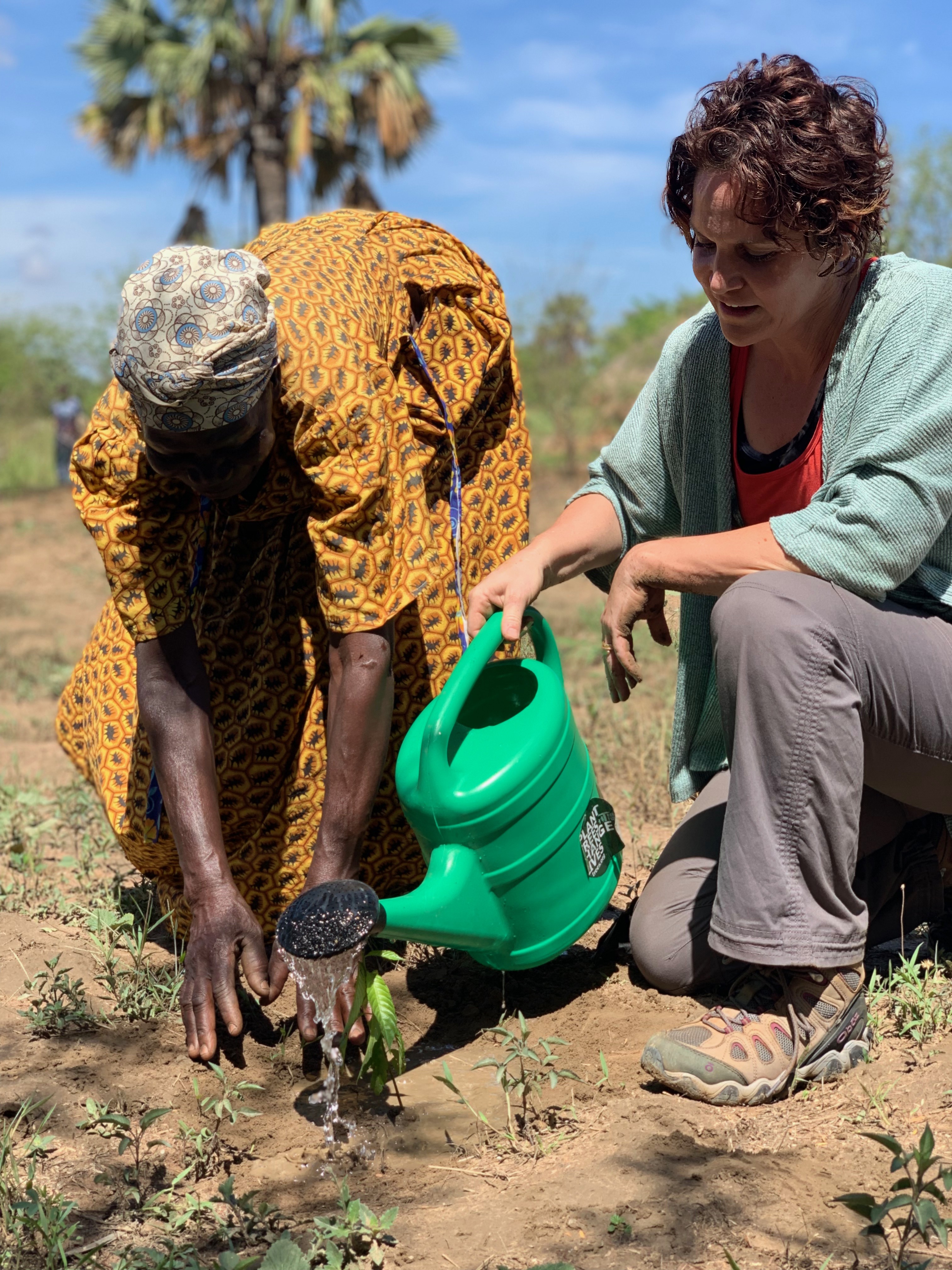
Growing up on a farm in Eastern Colorado, I not only learned hard work, but also the joy and desperation farmers experience with their livelihoods being codependent on weather and markets. However, despite working hard and being the most important element of our continued well-being and existence, farmers have largely become invisible in our modern food systems. And if the sprawling thousand-acre farms of the Midwest have become invisible, imagine the invisibility of Margaret, a Tanzanian woman farming two acres in a remote district of Iguguno, halfway between Mount Kilimanjaro and the Serengeti.
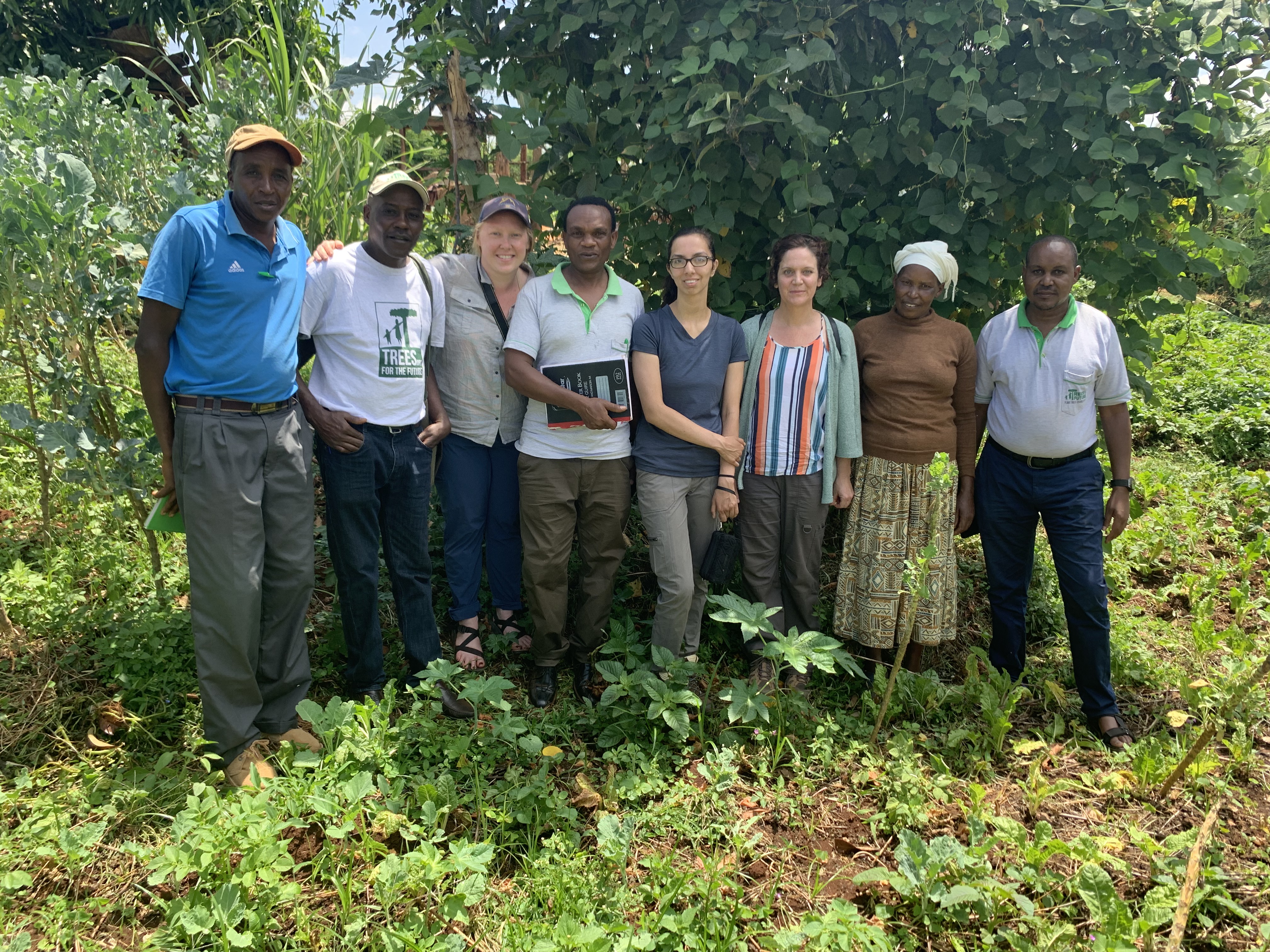
As the new Programs Director for Trees for the Future, this spring my two colleagues (Ashleigh Burgess and Arianna Huff) and I had the great pleasure of visiting Margaret, Rajabu, Joseph, Nayma, mama Angelina and many farmers like them during my orientation trip to all of our projects in Tanzania, Kenya, and Uganda. During this trip we joined our on the ground, full-time Country Coordinators and technicians visiting with Forest Garden farmers. As the new Programs Director, I had the opportunity to meet Forest Garden farmers who have graduated from the program, those who are just a year or two in, brand new Forest Garden farmers, and local farmers eager to join the program. There were three things that really stood out during our visits with TREES technicians and farmers: courage, pride, and belief.
Courage
Change is difficult – even when what you are doing is not working. For smallholder farmers in Africa, there is no credit or crop insurance. Their food supply and income for the year are dependent solely on the weather. Likewise, if they make changes to their crop production system, they need to be sure that the risk is not greater than that which already exists. For this reason, four years ago, it was difficult for TREES to convince farmers in rural communities that the Forest Garden Approach was worth the risk. Most farmers were reluctant to change, not knowing how this new method of farming might turn out. However, those that had the courage to try something new soon reaped the benefits. Nowhere is this seen more than with farmers that have graduated from projects in Busia, Uganda and Ikinu, Kenya. The trees in these farmers’ gardens have matured to the point where their impact is clearly visible. Farmers are harvesting an abundance of fruits, vegetables, trees’ seeds, and cattle fodder. They have honey-producing bee hives and fully established living fences. Their timber trees are tall and providing shade and their soil is rich with nutrients. With these visible results, word of mouth travels fast and we now have waiting lists of neighboring farmers in the communities of all our projects eager to join the program.
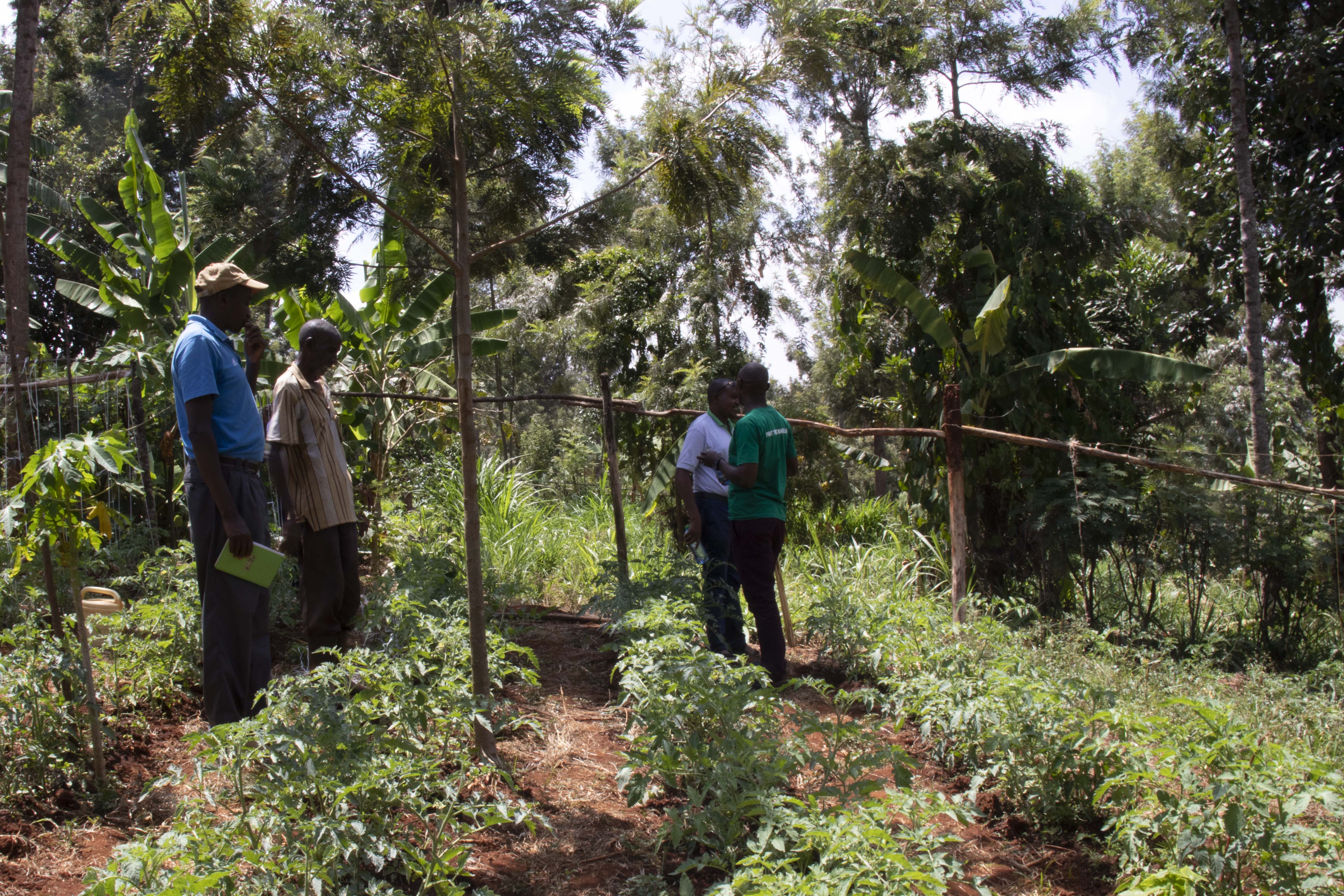
Pride
Forest Garden farmers have a visible sense of pride in the transformation they are making to their land. From the careful spacing and alignment of the trees they’ve planted to the protected seedling and vegetable nurseries they’ve constructed; it is clear that they take great care and pride in their work. One woman in our Homa Bay 1 project in Kenya beamed while stating, “Trees for the Future has helped us hold our shoulders high”. In addition, one of the highlights of our trip for me was getting to work side-by-side with the TREES technicians I’ve come to know over email and video conferencing. Many of our technicians come from farming communities, they have Bachelors and/or Masters degrees in agriculture and they have a great desire to better the lives of farmers in their respective countries. Although they work in difficult conditions, riding motorbikes many kilometers on treacherous roads and working in the scorching heat, TREES technicians are dedicated and arrive at farmers’ Forest Gardens smiling and ready to make a difference. They love their work and have a huge sense of pride in having the opportunity to work on something they strongly believe in and with people they care about – farmers.
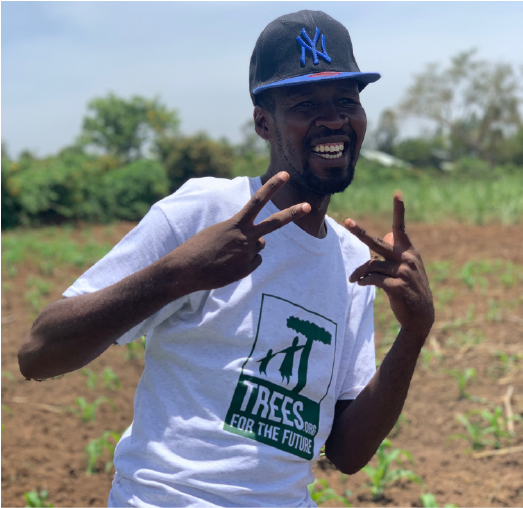
Belief
In sync with nature, farmers throughout the world recognize incremental changes in temperature, variances in rainfall and changes in seasonal weather patterns. Thus, it should be no surprise that farmers in East Africa are feeling and recognizing the impacts of climate change. However, I was surprised at farmers’ extreme desire to curb it through tree planting. Believing is half the battle and the farmers in TREES’ programs believe climate change is real and understand its implications as well as their ability to adapt and reverse it. One farmer in Uganda stated, “We cannot ask for [more] machines before we make something ourselves, because human beings are [a kind of] machine and we can control our future.”
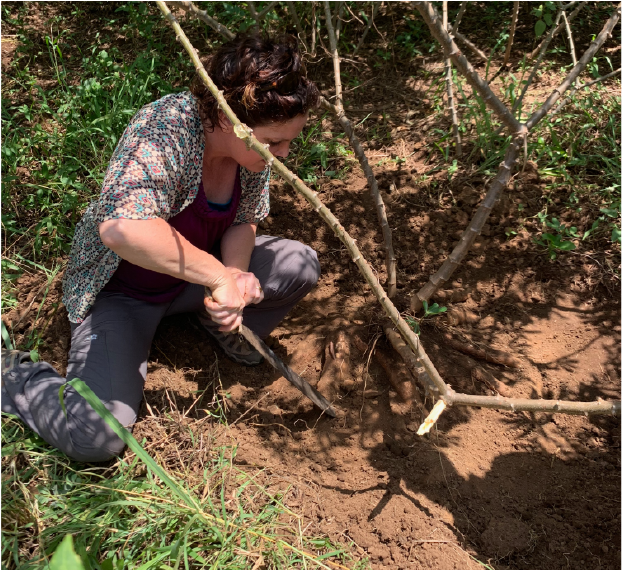
Through this trip I witnessed the tangible on the ground impact of Trees for the Future’s work in East Africa. By providing much-needed agriculture extension and training to thousands of farmers; people have the knowledge they need to grow and sustain their food production systems and incomes for years to come- despite a changing climate. And when I look deeper into the core of what TREES’ work provides, I see something that is much more abstract, but perhaps even more important; visibility and access. Farming can be a lonely, thankless endeavor. However, through the Forest Garden, Trees for the Future is connecting: individual farmers to each other through farmer groups; farmer groups to technicians through training and mentorship; farmers to communities that depend on food through increased production; and farmers to the world through individual donors and business partnerships. Farmers are making connections between farms and forests and instilling a love for farming and respect for forests in the hearts, minds and hands of their children, ensuring that farmers and the future of farming does not remain invisible for long.
